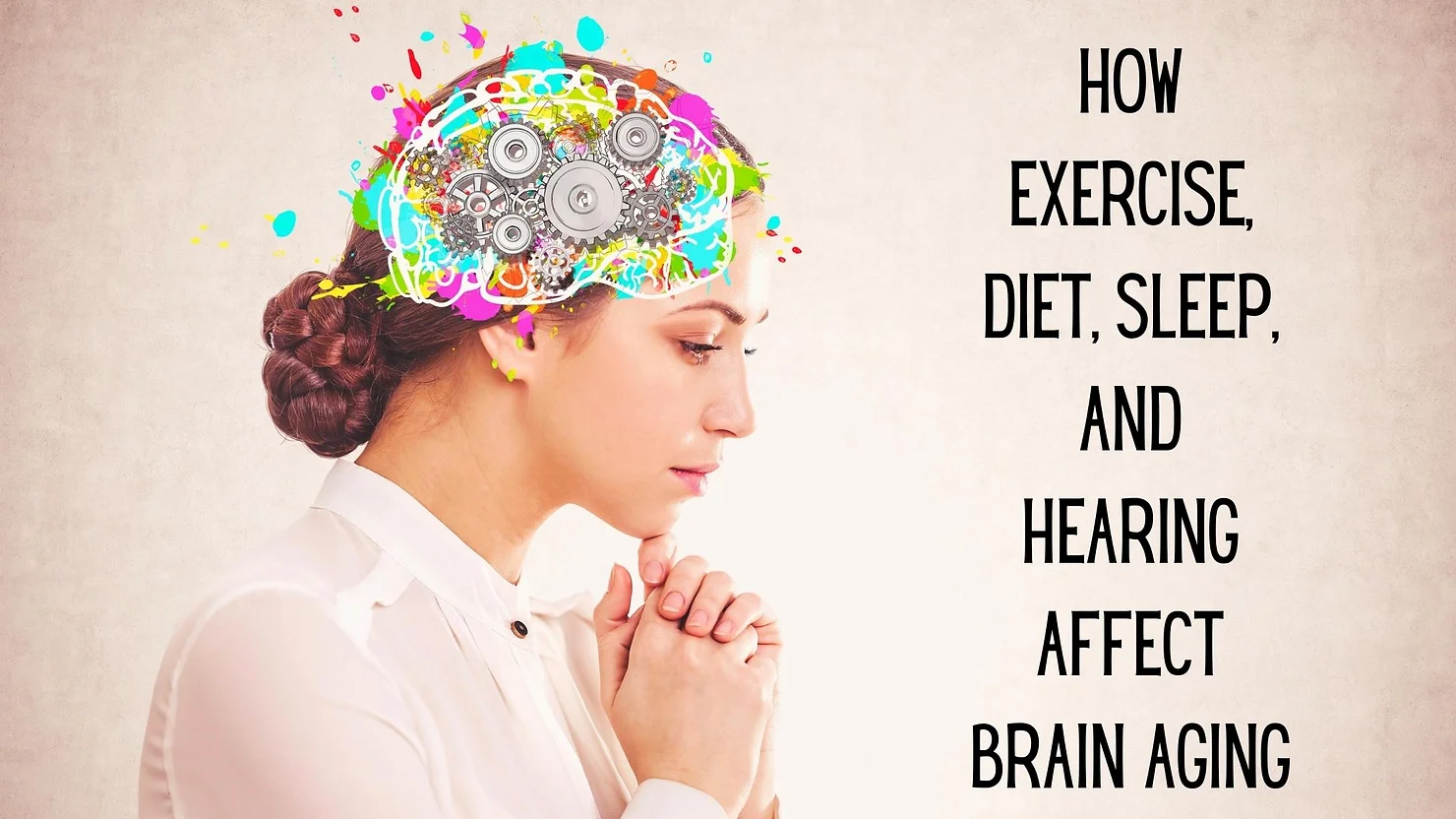
Aging is a natural process that impacts the entire body, including the brain. Over time, cognitive processes (thinking, decision making, memory, completing tasks etc.) can slow down as neural functions become less flexible. Though this inevitably occurs as one ages over time, there are specific lifestyle factors that can impact brain health – either accelerating or slowing the process down. A report published by researchers at the University of California San Diego’s Neuroscience Educational Institute (NEI) identified four factors that can strengthen brain health through the aging process: exercise, diet, sleep, and hearing.
Exercise
The numerous benefits of exercise are widely known: increased energy, strengthened immune system, enhanced blood and oxygen circulation, and it reduces health risks. But as the NEI report highlights, exercise is also great for one’s brain health. In a cohort study that included 1740 participants ages 65 and older, exercise and brain health were monitored for over 6 years. Researchers found that participants who exercised 3 or more times every week experienced a 32% reduction in risk of developing dementia compared to participants who exercised less than 3 times per week. Experts suggest that exercise improves memory, attention, and executive cognitive functions. Both intermittent and long term regular exercise benefits the brain.
Diet
Numerous studies show that diet can also improve brain health. Extensive research identifies diet as a modifiable factor that can reduce the risk of conditions like hearing loss which negatively affects the brain. A significant study published in 2019 in the American Journal of Epidemiology investigated the link between diet, hearing loss, and brain health. It included 81,818 participants whose diets and hearing health was assessed every 4 years for a total study duration of 22 years. Researchers found that compared to participants who were not following healthful diets, participants who were following a health diet were:
-
25% less likely to develop high frequency hearing loss
-
30% less likely to develop mid-frequency hearing loss
The healthy diets participants followed closely resembled diets including the Alternate Mediterranean Diet (AMED) and Dietary Approaches to Stop Hypertension (DASH). These diets emphasize high intakes of fruits, vegetables, whole grains as well as reduced intake of red meat and processed foods. Experts suggest that a healthier diet supports all the systems that sustain the body. This reduces the risk of developing chronic health conditions including hearing loss and improves brain health.
Sleep
Sleep is a vital process that the body needs to rest and replenish. It is estimated that 35% of adults receive less than the recommended amount of adequate sleep per night. Additionally, 50 to 70 million adults live with a sleep disorder which includes insomnia and sleep apnea. Not only does this mean lack of quality of sleep and various symptoms (irritability, fatigue, stress, difficulty concentrating etc.), but it can also affect brain health. Sleep deprivation increases the release of amyloid beta which are plaque deposits that are a common sign of Alzheimer’s disease. However, during slow wave sleep, amyloid beta is cleared more effectively. This highlights how important sleep is for cognition and overall brain health.
Hearing
While you probably would have guessed that diet, exercise, and sleep affect brain health; hearing may catch you by surprise. Hearing loss disproportionately impacts older adults: 1 in 3 people ages 65-74 have hearing loss and half of all adults who are 75 and older have hearing loss. Substantial research shows that hearing loss can significantly increase the risk of cognitive decline. As cited in the NEI report, over a 10 year period:
-
Mild hearing impairment = 2x increased risk of dementia
-
Moderate hearing impairment = 3x increased risk of dementia
-
Severe hearing impairment = 5x increased risk of dementia
Untreated hearing loss can affect the brain in a variety of ways. Hearing not only happens in the ears but also in the brain. There are specific portions of the brain that are responsible for processing and understanding sound. Hearing loss results in less sound stimulation which can weaken these areas. This weakens neural networks and connections which reduce cognitive functions. Treating hearing loss not only transforms hearing but also improves brain health. The most common treatment for hearing loss is hearing aids – electronic devices that absorb, amplify, and process sound. By providing the ears and brain ample support, hearing aids strengthen cognitive functions which reduces the risk of cognitive decline.
Exercise, diet, sleep, and hearing are important lifestyle factors that can improve brain health. Contact us to learn more!
